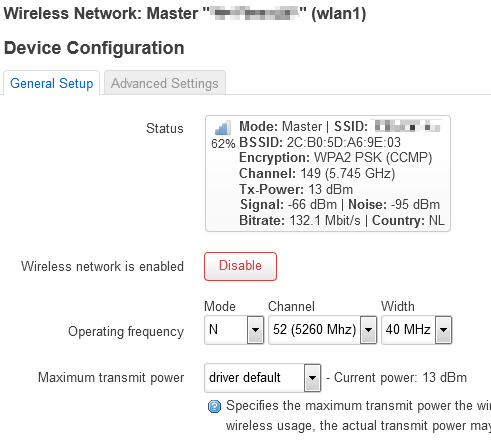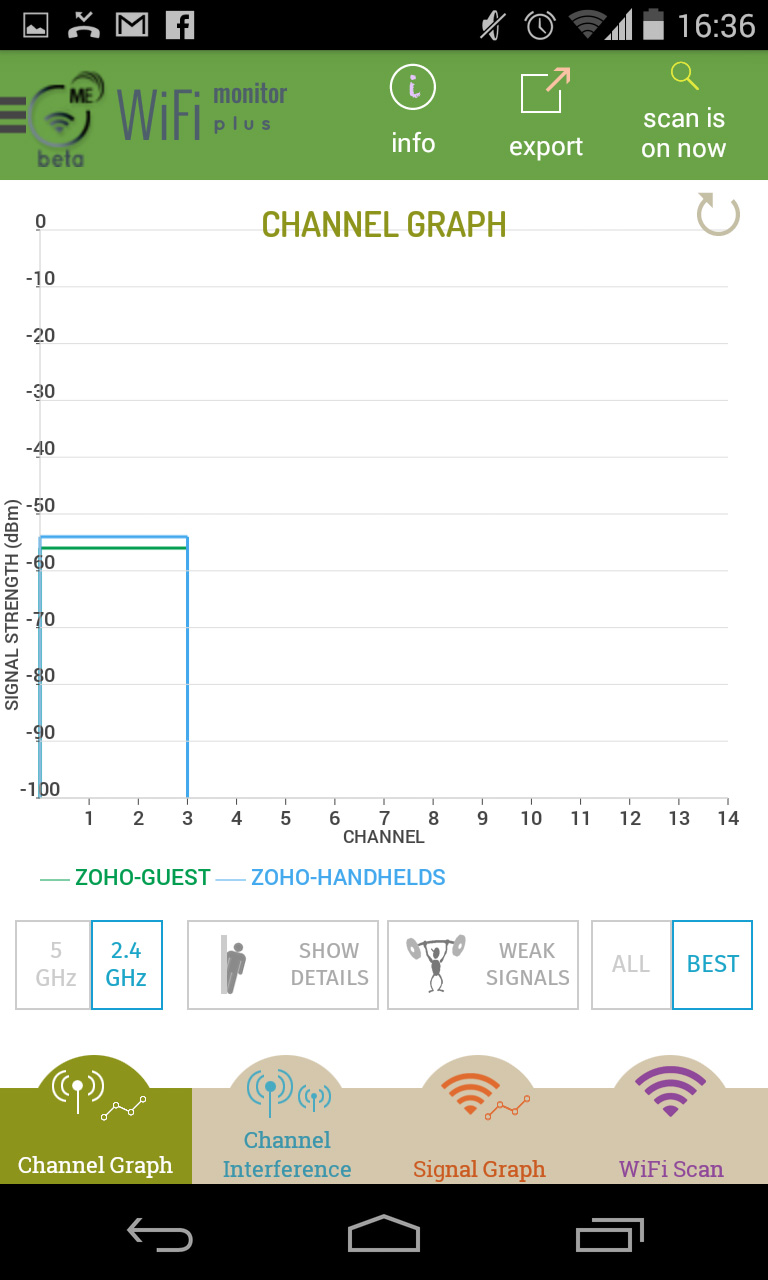

If zyou’re phone keeps losing network connection on android, this is a fix that a lot of you might find useful.
#How to check wifi channel crowding android#
Why do I keep losing internet connection on my phone?Īdjust smart network switch settings on android Tap the Proxy setting and make sure your Android device is not set up for a Proxy.Go to the Wi-Fi Scan tab and look at the Best 2.4 GHz Channels and Best 5 GHz Channels fields. I gnoring the window that appears, select Window from the menu bar and click Utilities. Tap the Menu button again by clicking on the Wi-Fi option. Select the Open Wireless Diagnostics option.

How do I keep my phone connected to WiFi? Top 8 Ways to Fix Android Wi-Fi Keeps Disconnecting and Reconnecting Issue How do I fix unstable WiFi on my Android? Connect your phone to the WiFi and see if the problem is solved. Restart your phone: Press and hold the “power” button, turn off your phone and then turn it on. Reboot the Router: Pull out the router, wait for at least 30 seconds, then plug it back in and connect your phone to the WiFi. How do I get my Android phone to stay connected to WiFi? … Check to see if Wi-Fi keeps disconnecting. Go to Settings > Wi-Fi and tap on the action button (more button). Why does my WiFi keep turning off on my Android phone?
#How to check wifi channel crowding Bluetooth#
Why does my WiFi keep turning off on my Android phone?.How do I stop my android from disconnecting from my WiFi?.Generally, a signal with an SNR value of 20 dB or more is recommended for data networks where as an SNR value of 25 dB or more is recommended for networks that use voice applications.
For instance, a received signal of -65 dBm can be considered good at a location that has a noise floor of -90 dBm (SNR 25 dB) but not so much at a location with a noise floor of -80 dBm (SNR 15 dB). This will degrade wireless throughput and latency as the retransmitted signals will take up airtime in the wireless environment.Ĭisco Meraki Access Points reference the Signal to Noise Ratio as the indication for the quality of the wireless connection. This provides a more accurate depiction of the health of the wireless signals as it takes the RF environment and ambient noise levels into account. The further a received signal is from the noise floor, the better the signal quality. Signals close to the noise floor can be subject to data corruption, which will result in retransmissions between the transmitter and receiver. For best performance in a wireless environment, it is key that wireless devices are able to distinguish received signals as legitimate information they should be listening to and ignore any background signals on the spectrum. There is a concept known as the Signal to Noise Ratio or SNR, that ensures the best wireless functionality. The SNR is the difference between the received wireless signal and the noise floor. The noise floor is simply erroneous background transmissions that are emitted from either other devices that are too far away for the signal to be intelligible, or by devices that are inadvertently creating interference on the same frequency.įor example, if a client device's radio receives a signal at -75 dBm, and the noise floor is -90 dBm, then the effective SNR is 15 dB. This would then reflect as a signal strength of 15 dB for this wireless connection.


 0 kommentar(er)
0 kommentar(er)
